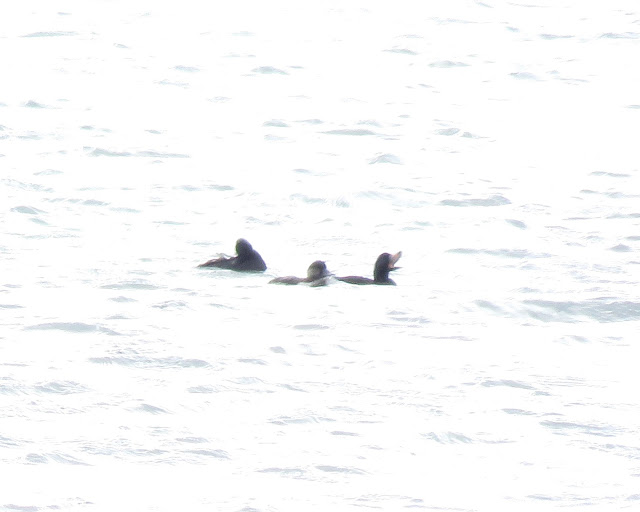Saturday, July 31, 2021
A walk at Achnahaird that was cut short thanks to spatters of rain and a very strong wind off the sea brought a flock of wary oystercatchers - migrants, presumably - and my first two returning sanderling.
I'm fairly sure these are Colletes succinctus - also known as heather colletes bee or common colletes bee. This raises the problem I have with initial capitals for common names; if there is a well-known common name in English for a particular insect - e.g. southern hawker - then it makes sense to give it initial caps. But when there's a variety of common names to choose from then the use of initial caps doesn't make sense - it just makes for confusion. Also, the same common name can be duplicated: there are, for instance, two kinds of hoverfly that seem to be known as "bog hoverfly" - yet they are clearly two separate species. Some species have no common name at all so you have to use the scientific one; and I would think entomologists probably do this all the time. The odd thing is, while I can often remember the Latin names for insects and plants, I can recall very few Latin names for birds.
Across the headland at Badentarbat I was about to tuck into a sandwich when a group of three dark dots quite far out looked different from the Eider ducks that were swimming about near the jetty. It was a good job I got out of the car to check, because they were common scoter. They appeared to be two drakes and a duck; there was some evidence of courting behaviour, with one of the males snapped with open bill as though calling; unfortunately they were too far out to hear anything.
Bonxies were active on this side of the headland, and a few gannets were seen. At Achnahaird while we were watching the bees, a family party of twite flew over calling and Greger pointed out a couple of porpoises making their way along the edge of the bay just below us, and heading all the time back out to sea.





